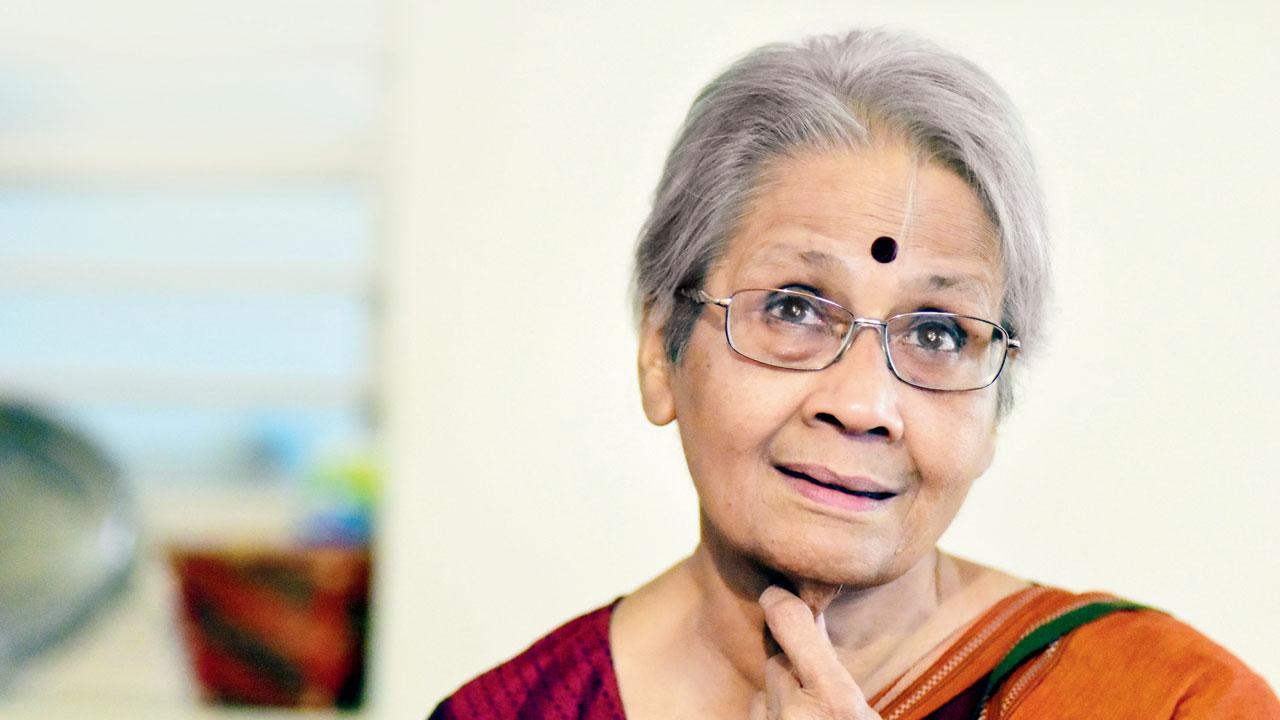Writer and translator Shanta Gokhale tells mid-day how English, Marathi, Hindi, and Gujarati plays and literature have evolved in the city

Gokhale says that plays in Mumbai are shaped through the lens of the language in which they are produced. File Pic
Ask Shanta Gokhale what plays have left an impression on her in the 60-odd years of her career as a writer, translator, and theatre critic, and the 84-year-old says with a laugh, “I’ve been watching plays since I was 12. I’ll have to draw up a list of 60 to 70 plays to answer that question!” We are talking to her about her upcoming keynote address on the evolution of Marathi, Hindi, Gujarati, and English plays and literature in Mumbai, in which, as a translator and critic, Gokhale has played an essential role.
ADVERTISEMENT
The theatre critic will be presenting the address at the sixth Tikekar Memorial Fellowship awards ceremony, organised by the Dr Aroon Tikekar Centre for Advanced Studies, set up the Asiatic Society to honour the scholar, researcher and writer. This year, lecturer and researcher Dr Himanshu Smart will be the sixth recipient of the fellowship. Since the research studies are based on theatre and literature in Mumbai, Gokhale said she chose to represent these aspects through the lens of language.
“When you think of theatre or literature in Mumbai, you immediately think of the four languages that the city writes in—Marathi, Gujarati, Hindi, English,” she explains. “I noticed that none of these language groups really know the theatre or literature of the other language groups.” That’s how the title of the talk, she says, came about: The Great Language Divide, a single city divided by tongue.
She goes on to outline how Mumbai has a rich history of drama and theatre. “English theatre began by importing plays from Western theatre, America, Britain, Europe,” she explains, “because its audience came from South Mumbai and was more connected to Western culture.”
Gujarati language theatre was located in Kalbadevi, as a form of entertainment for the local traders. Known as Bhangwadi theatre, it differed from other forms in terms of the music, dance, and comedy that it showcased, often performed to small audiences and in specific pockets of the city, such as Vile Parle and Ghatkopar. Today, Gujarati plays are no longer ticketed, but showcased on a contract basis, in contrast to Marathi theatre, which is a huge industry.
“Marathi theatre has a long tradition, going back to the mid-19th century,” she informs us. “It began in Girgaum, which was then a Marathi stronghold. As the Marathi population shifted to Navi Mumbai, Thane and Dombivli, theatre went with them.” Hindi theatre, on the other hand, she explains, is closely associated with Juhu’s Prithvi Theatre, again, because of its proximity to the film industry. Each of these language groups have distinct themes, reflecting the aspirations and goals of the societies they represent.
And what of the comparisons between regional and English literature in the city? “Regional literature is limited by its geography and culture, as compared to English literature, which draws from world sources,” she says. “The regional writer looks at issues impacting the local readership. The writer in English is addressing a global reader.”
WHAT: Tikekar Memorial Fellowship Awards Ceremony 2024
WHEN: February 1, 5 PM onwards
WHERE: Durbar Hall, Asiatic Society of Mumbai
 Subscribe today by clicking the link and stay updated with the latest news!" Click here!
Subscribe today by clicking the link and stay updated with the latest news!" Click here!







